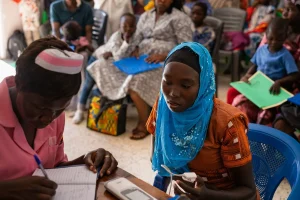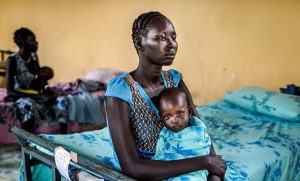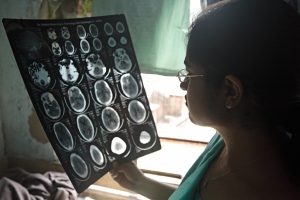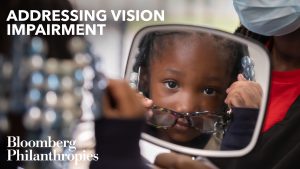Men urged not to underestimate Intestinal Worms, encouraged to seek treatment
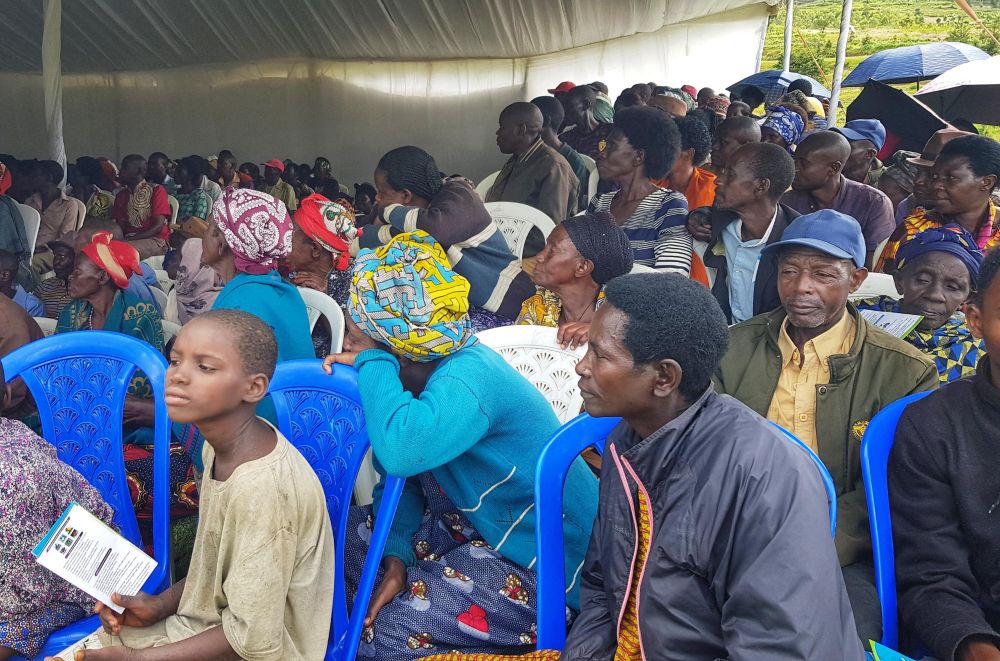
Men are being encouraged to take deworming medication and seek treatment when showing symptoms of intestinal worms, instead of dismissing them as a “child-only” illness. Intestinal worms are among the most prevalent neglected tropical diseases (NTDs) affecting millions globally, including a significant number in Rwanda.
According to the World Health Organization (WHO), more than 1.5 billion children worldwide—around 24% of the global population—are infected with intestinal worms. These diseases are especially common in tropical and subtropical regions with poor sanitation, hygiene, and limited access to clean water.
Although children between the ages of 1 and 14 are most at risk, adults—particularly farmers working in wetlands, fishermen, and those living in unsanitary environments—are also vulnerable. However, many men are not taking deworming tablets, said Dr. Eric Niyongira, an official at the Rwanda NGOs Forum in charge of the NTDs programme.
He recently explained: “Men are not participating in deworming programmes. They often say worms are a children’s issue. But when children take deworming tablets and the man doesn’t, he can reinfect them. That’s a serious problem—men are letting us down.”
“Health is a shared responsibility. If I maintain proper hygiene but my family members don’t, all my efforts will be in vain”, he added.
A 2020 study by Rwanda Biomedical Centre (RBC) found that soil-transmitted helminthiasis (STH), commonly known as intestinal worms, and schistosomiasis are the most widespread in Rwanda, with a national prevalence of 41%.
Rwanda has committed to eliminating NTDs by the year 2030.
The Acting Head of Health in Ruhango District, Umukundwa Ladegonde, emphasised the need for everyone to contribute by embracing preventive measures and seeking timely treatment.
“The government has made significant investments to eliminate these diseases—for example, the biannual health campaigns promoting maternal and child health include free distribution of deworming tablets. People should take part in these campaigns. Additionally, anyone showing symptoms should seek medical help, as treatment is covered by community-based health insurance. No one should suffer unnecessarily”, she said.
Donat Mporananabo, a resident of Murambi Sector in Karongi District, affirmed that intestinal worms do not discriminate, and men should be proactive in taking medication to avoid the socioeconomic setbacks they cause.

He said: “Intestinal worms can be debilitating. A previously strong man may lose weight or experience hair thinning—signs of poor nutrition. Beyond that, the economic cost is high. If you’re ill for two or three days, both your household and your neighbour’s can regress. Medication is available at health centres, and we have insurance. There’s no excuse to neglect treatment.”
He stressed that community health workers distribute free deworming tablets, and that the medicine is meant for both children and adults.
Community awareness that intestinal worms are treatable
Paul Semwogere from Cyanika Sector in Burera District cautioned men who ignore free deworming medication and fail to seek treatment.
“When health workers offer free deworming tablets, some men ignore them. We remind them that this is for their benefit. If he falls sick, his household will not progress. Even his neighbour’s household could be affected. Instead of being a burden, it’s better to take the medicine and stay healthy—because worms are curable”, he noted.
Joel Ahishakiye from Gahunga Sector echoes the sentiment saying: “I’m more aware now. I don’t delay treatment, because it helps me stay healthy and work towards a better future. Men should get involved. Recently, we took deworming tablets from community health workers, and many men participated—though older men tend to ignore it.”

How intestinal worms spread and their effects
Experts indicate that intestinal worms spread through contaminated food or water, contact with soil polluted by human or animal faeces, poor hygiene—like not washing hands before meals—walking barefoot in contaminated areas, and eating undercooked meat.
The 2020 RBC report showed that adults (16+) are the most affected age group at 48%, followed by school-aged children (5–15) at 41%, and pre-schoolers at 31%. Regarding schistosomiasis, 47% of the 2,148 surveyed administrative cells were eligible for mass deworming.
Between July 2023 and June 2024, amoebiasis was the most commonly diagnosed intestinal parasitic disease in Rwandan health facilities, with 549,237 cases. It was followed by intestinal trichomonas and giardiasis. Among STHs, Ascaris was the most frequently diagnosed.
Symptoms of intestinal worm infections include abdominal pain, nausea and vomiting, loss of appetite, chronic fatigue, weight loss, diarrhoea or constipation. If untreated, they can cause long-term effects, especially in children, including stunted physical and cognitive development.
The government’s awareness campaigns urge households to ensure proper sanitation, including clean, covered, and ventilated latrines; dish racks; clotheslines; and separate animal shelters to protect children and adults from infection.
Mass Drug Administration (MDA)
According to RBC, the Ministry of Health has partnered with pharmaceutical companies to donate drugs for deworming all at-risk groups, including adults aged 16 and above, in line with national and WHO goals to eliminate NTDs.
During the 2023–2024 fiscal year, 29,566,000 Albendazole tablets and 3,276,000 Praziquantel tablets were secured for distribution through MDA. Of these, 11,820,000 tablets were donated through WHO by pharmaceutical companies, 851,000 tablets by Vitamin Angels via Home for Hope Foundation, 12,801,700 purchased with support from the END Fund, and 4,093,300 funded by the Government of Rwanda. WHO also donated the 3,276,000 praziquantel tablets.


SUBSCRIBE TO OUR NEWSLETTER



